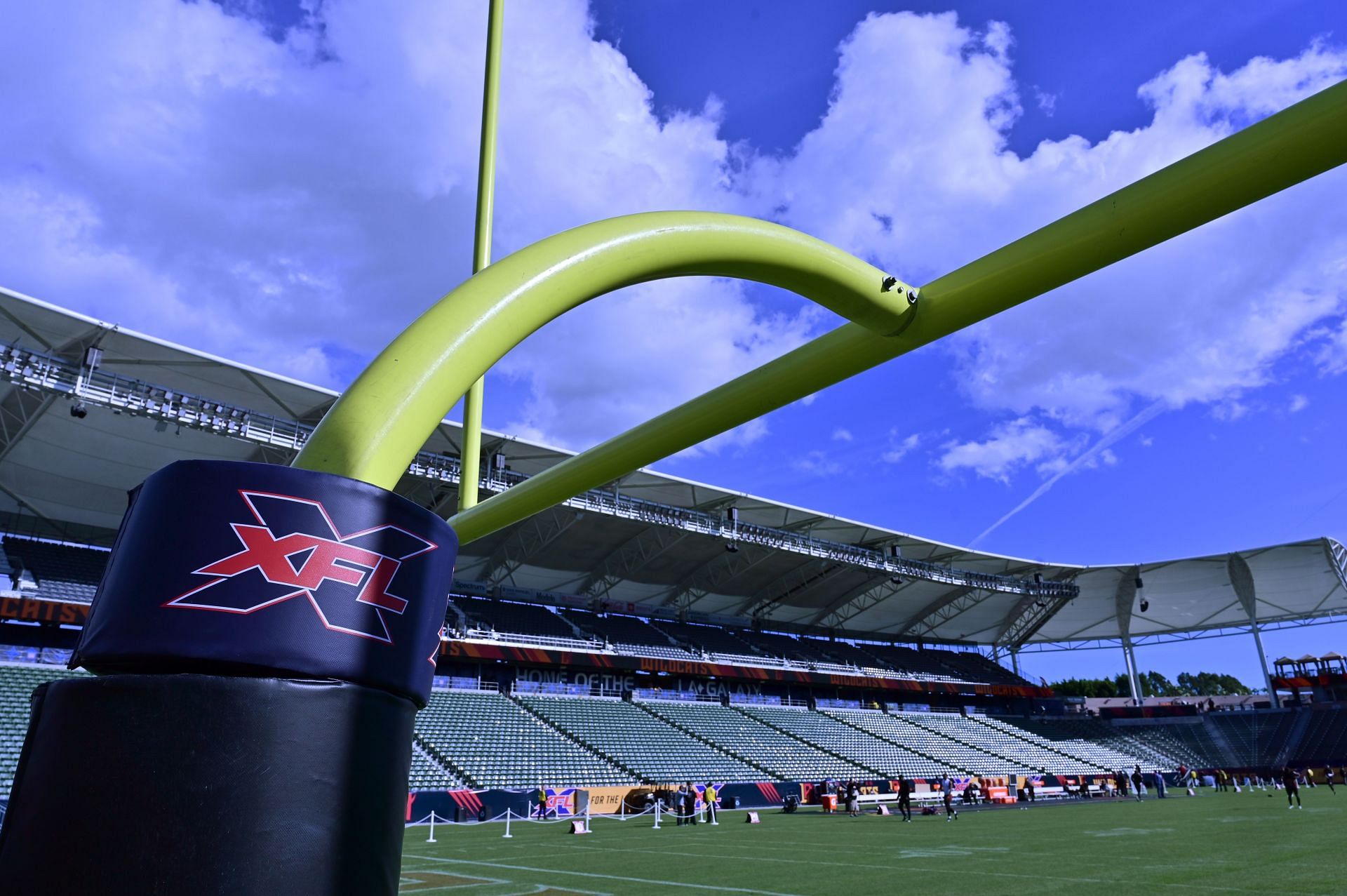
Top 10 rule changes from original XFL in the current edition
The original version of the XFL was founded in 1999, with its inaugural game kicking off in 2001. The brand new concept was run by WWE owner Vince McMahon, who wanted to bring more of the entertainment angle to football, like wrestling. Things didn't really work out, as the XFL officially folded after just one season.
The XFL attempted to revive their league about 20 years later in 2020, but the COVID-19 pandemic derailed their season before it could really gain any momentum. Three years later, the XFL is back once again, but this time around they have a new leader. Dwayne Johnson has taken over for McMahon and has a bit of a different vision for the concept.
Johnson seems to be much more focused on the football side of the operation, rather than the theatrics that McMahon wanted to bring over from WWE. Among the many changes that he's making to the original concept are the rules on the football field. The game will be played much differently fundamentally this time around.
Here are ten of the most notable rule changes.

#10 Traditional coin tosses
The original version of the XFL eliminted the coin toss to open the game. Instead, a player from each team raced 50 yards to possess a free football. The first player to get the ball, wins the "coin toss." In 2023, they will return to the traditional NFL coin toss due to injury concerns.
#9 Additional timeouts
The NFL allows each team three timeouts per half of the game. The 2023 XFL season will replicate this format for timeouts. The original league reduced that number to two timeouts per team per half.
#8 Increased play clock
The play clock in the original 2001 version featured just 25 seconds for teams to get off their next offensive play. The new 2023 league will increase it by ten seconds, allowing teams 35 seconds to call a play. This is still slightly shorter than the NFL, giving teams 40 seconds.
#7 Fair catches allowed
McMahon's version of the XFL completely eliminated the fair catch rule during punts. Johnson will bring this back to his version of the game, as the NFL currently has, in an effort to continue making player safety a priority.
#6 College overtime rules with a twist
Overtime will use the college football concept of alternating possessions to determine a winner with no possibility of a complete tie game. The twist is that each team will receive three attempts each from their opponents' five-yard line to score as many points as possible. Additional attempts will be given if the game is still tied after three each. This unique format is the first of its kind.
#5 Eliminating fumbles that result in turnover-touchbacks
One of the most controversial rules in the NFL, and adopted by McMahon also, is that if a team fumbles the football in the field play and it eventually goes out of the endzone, the play results in a change of possession and a touchback for the other team. They are eliminating this rule. If this type of fumble occurs, the fumbling team will retain possession at the spot where it originally happened and their possession will continue.
#4 XFL's instant replay command center
Rather than referees reviewing challenged plays on the football field, a command center of officials at a neutral and centralized location will be in charge of this process. This will help speed up the review process on the football field and keep the flow of the game moving forward.
#3 2-point and 3-point conversions
The new XFL adopted the old concept that eliminates a traditional extra-point kicking attempt from the NFL. Immediately following a touchdown, teams have the option to go for one, two, or three extra-points. They all represent one attempt to get back into the endzone, from the two, five, or ten-yard lines, respectively. The old version featured just a one-point attempt from the two-yard line.
#2 An alternate to onside kicks
In the fourth quarter only, the 2023 XFL version features a new way for the "kicking" team to retain possession of the ball. Instead of a traditional onside kick, they can attempt one play on a fourth down and 15 yards-to-go situation. The game will continue from the result of real-time play on the field, however, and wherever that may be.
#1 Anything can be challenged
For the first time ever in any format of professional football, all officiating decisions are completely open to being challenged by either team. There are no restrictions on what qualifies as a reviewable call. Each team is allowed one challenge per game on any call during any play.